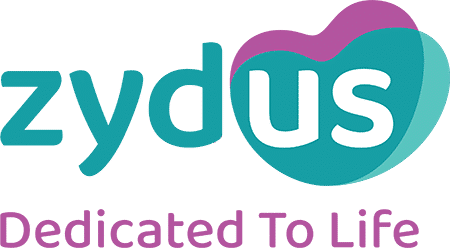预约演示
更新于:2025-05-07
Zydus Cadila Healthcare Ltd.
子公司|India
子公司|India
更新于:2025-05-07
概览
标签
感染
皮肤和肌肉骨骼疾病
肿瘤
生物类似药
单克隆抗体
集落刺激因子
疾病领域得分
一眼洞穿机构专注的疾病领域
暂无数据
技术平台
公司药物应用最多的技术
暂无数据
靶点
公司最常开发的靶点
暂无数据
| 排名前五的药物类型 | 数量 |
|---|---|
| 生物类似药 | 11 |
| 单克隆抗体 | 9 |
| 集落刺激因子 | 4 |
| 小分子化药 | 3 |
| 干扰素 | 2 |
关联
31
项与 Zydus Cadila Healthcare Ltd. 相关的药物靶点- |
作用机制 免疫刺激剂 |
在研适应症 |
非在研适应症- |
最高研发阶段批准上市 |
首次获批国家/地区 印度 |
首次获批日期2017-02-24 |
作用机制 PPARα激动剂 [+1] |
最高研发阶段批准上市 |
首次获批国家/地区 印度 |
首次获批日期2013-06-05 |
靶点- |
作用机制 免疫刺激剂 |
非在研适应症- |
最高研发阶段批准上市 |
首次获批国家/地区 印度 |
首次获批日期2010-05-01 |
100 项与 Zydus Cadila Healthcare Ltd. 相关的临床结果
登录后查看更多信息
0 项与 Zydus Cadila Healthcare Ltd. 相关的专利(医药)
登录后查看更多信息
16
项与 Zydus Cadila Healthcare Ltd. 相关的文献(医药)2023-05-03·Journal of AOAC International
LC–MS-Compatible Chromatographic Method for Quantification of Potential Organic Impurities of Elagolix Sodium in Tablet Dosage Form with Identification of Major Degradation Products
Article
作者: Prajapati, Rohit ; Chokshi, Avani ; Desai, Pritesh
2022-03-01·Journal of Pharmacology and Pharmacotherapeutics
Physician Preferences for Olanzapine Standard Oral Tablets and Orally Disintegrating Tablets: A Cross-Sectional Survey
作者: Gandhi, Hardik
2022-02-01·Vaccine3区 · 医学
How to accelerate the supply of vaccines to all populations worldwide? Part I: Initial industry lessons learned and practical overarching proposals leveraging the COVID-19 situation
3区 · 医学
Review
作者: Thien, Michael P ; de Moraes Stávale, Monique Collaço ; McGoldrick, Mic ; Campa, Cristiana ; Van Ooij, M ; Dellepiane, Nora ; Mlynarczyk, Peter J ; Basso, Ana ; Gastineau, Thierry ; Juvin, Philippe ; Mallia-Milanes, Andrea ; Krishnan, Jyothsna ; Saltus, Edward ; Clercq, Norbert De ; Germay, Olivier ; Clenet, Didier ; Wilkinson, Diane ; Pagliusi, Sonia ; Sivaramakrishnan, Venkatraman H ; Desai, Samir
100 项与 Zydus Cadila Healthcare Ltd. 相关的药物交易
登录后查看更多信息
100 项与 Zydus Cadila Healthcare Ltd. 相关的转化医学
登录后查看更多信息
组织架构
使用我们的机构树数据加速您的研究。
登录
或

管线布局
2025年11月13日管线快照
管线布局中药物为当前组织机构及其子机构作为药物机构进行统计,早期临床1期并入临床1期,临床1/2期并入临床2期,临床2/3期并入临床3期
临床前
5
3
临床1期
批准上市
14
9
其他
登录后查看更多信息
当前项目
登录后查看更多信息
药物交易
使用我们的药物交易数据加速您的研究。
登录
或

转化医学
使用我们的转化医学数据加速您的研究。
登录
或

营收
使用 Synapse 探索超过 36 万个组织的财务状况。
登录
或

科研基金(NIH)
访问超过 200 万项资助和基金信息,以提升您的研究之旅。
登录
或

投资
深入了解从初创企业到成熟企业的最新公司投资动态。
登录
或

融资
发掘融资趋势以验证和推进您的投资机会。
登录
或

生物医药百科问答
全新生物医药AI Agent 覆盖科研全链路,让突破性发现快人一步
立即开始免费试用!
智慧芽新药情报库是智慧芽专为生命科学人士构建的基于AI的创新药情报平台,助您全方位提升您的研发与决策效率。
立即开始数据试用!
智慧芽新药库数据也通过智慧芽数据服务平台,以API或者数据包形式对外开放,助您更加充分利用智慧芽新药情报信息。
生物序列数据库
生物药研发创新
免费使用
化学结构数据库
小分子化药研发创新
免费使用

